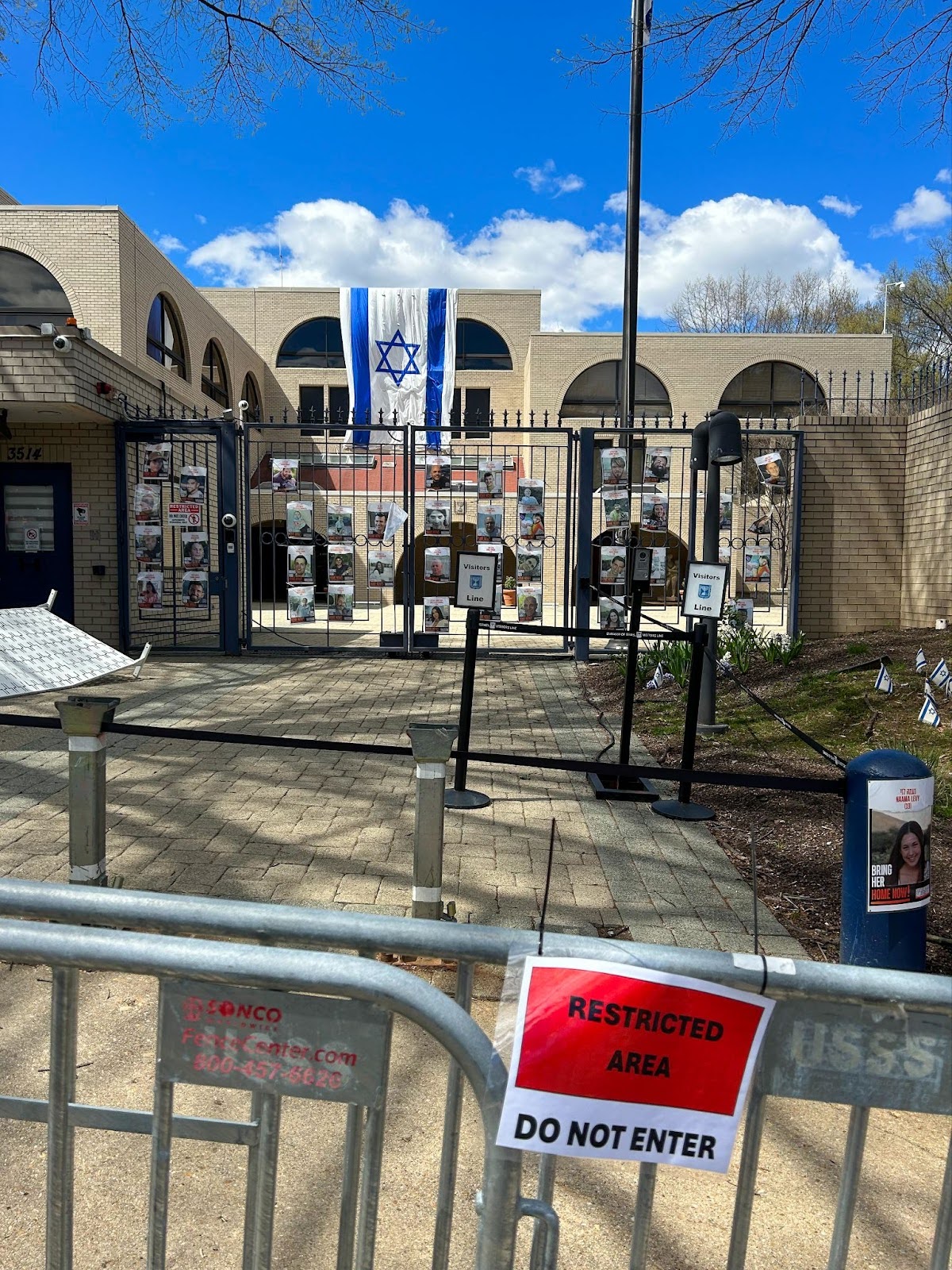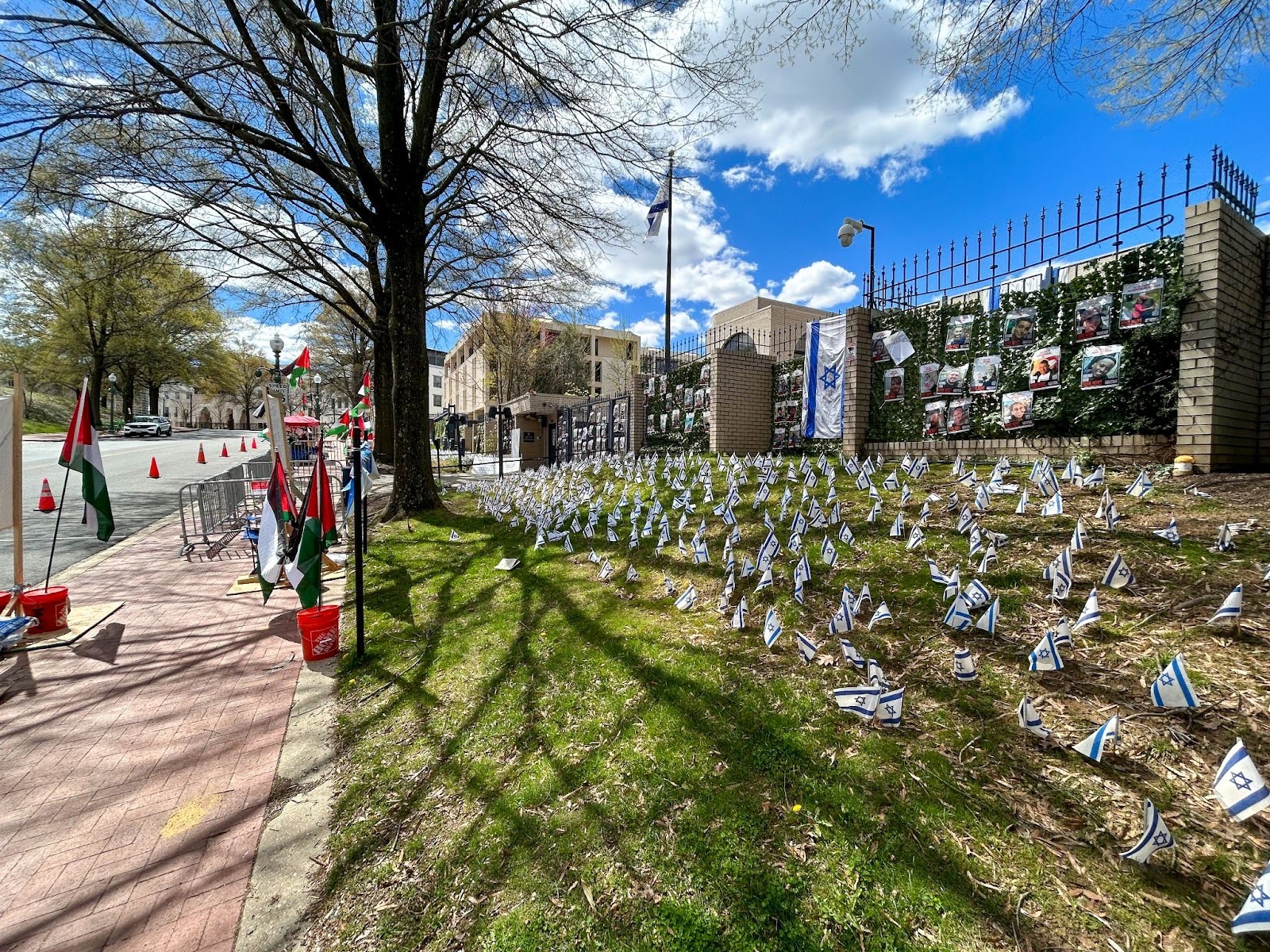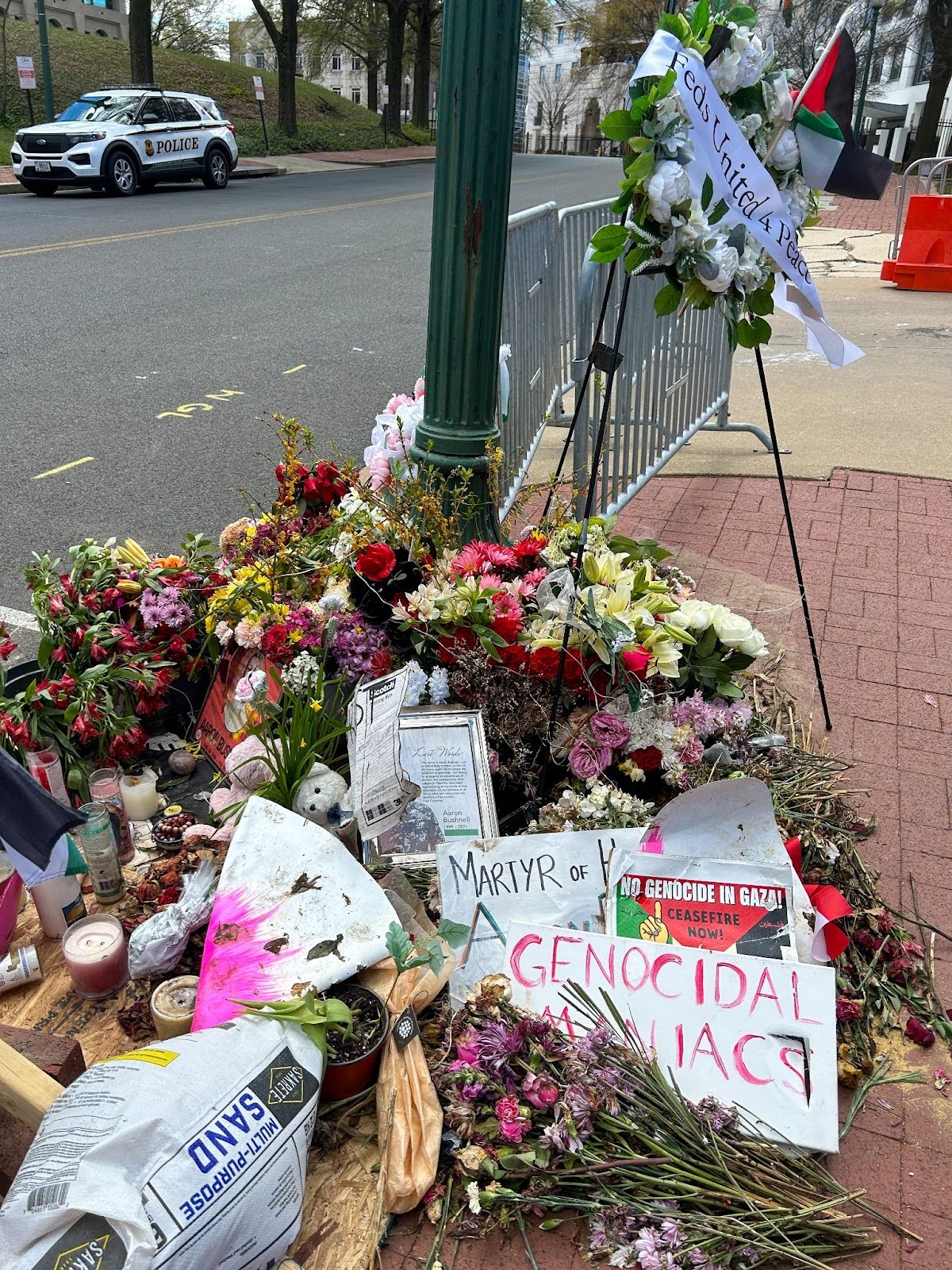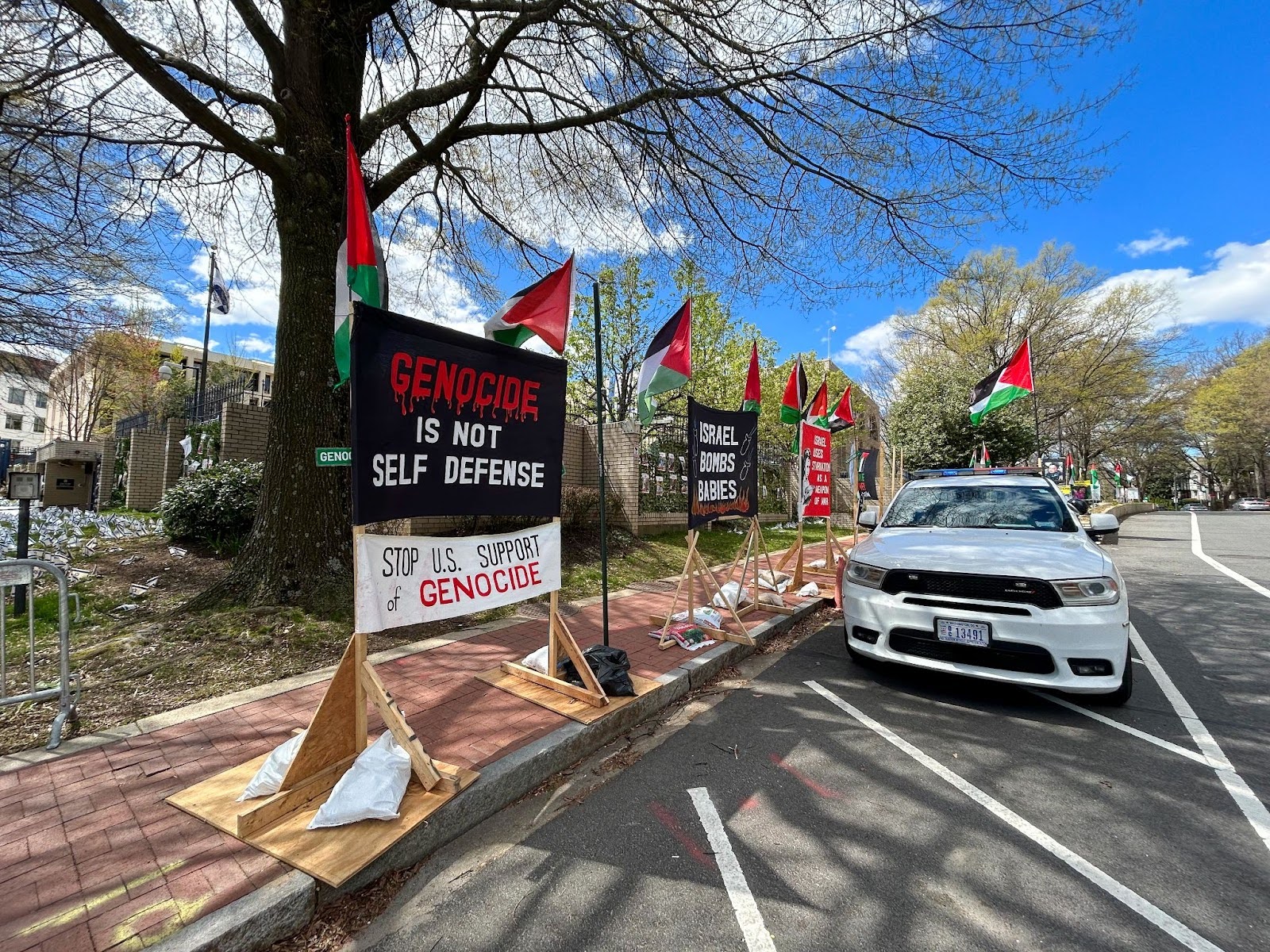“Flags Tug-of-War” pitting pro-Palestinian protesters, Tel Aviv’s embassy in DC vigil
Published: 2024-04-27 12:32
Last Updated: 2025-02-27 06:59
Editor: Laith Weinberger

In front of the Tel Aviv embassy in Washington, DC, dozens of Palestinian flags stand alongside signs declaring it “an apartheid state” and protesting what activists believe is genocide in Palestine.
A cluster of flowers memorialize Aaron Bushnell, who died in February after setting himself on fire outside the embassy in an act of protest. Activists sit in lawn chairs at all hours of the day, guarding the protestors’ self-described “settlement.” Sophia Kelleher, an American who volunteers to sit in front of the embassy, explained that if activists are not present, the embassy security will remove the signs and flags.
Since the Hamas-led attack in October 2023, the longstanding conflict between Israelis and Palestinians escalated, resulting in the killing of at least 34,000 Palestinians and 1,200 Israelis. Tel Aviv declared a state of war and launched a bombing campaign and ground invasion to defeat Hamas and control the Gaza Strip. Many have criticized Tel Aviv’s response and the US for its support of Tel Aviv.
Grassroots groups in DC, often using Facebook and WhatsApp, have organized demonstrations protesting the war in Gaza in front of the Tel Aviv embassy, the White House, government buildings, and the house of US Secretary of State Antony Blinken.
Haitham Arafat, one of the volunteers, first spotted the protests when he was driving by Blinken’s home in Virginia. For months, activists have set up tents and camped in front of Blinken’s home, hanging up signs and pouring fake blood to criticize his response to the war in Gaza and raise awareness of Palestinian casualties.
After seeing the protests in front of Blinken’s house, Arafat decided to participate in the demonstrations. He began taking time from his job to attend the protests, and he retired in March, planning to dedicate his life to raising awareness of the situation in Palestine. “I cannot enjoy anything while this genocide is going on. Life has a different meaning to me after this killing,” he said, referring to the killing of Palestinians in Gaza.

Activist Haitham Arafat looks after the vigil in front of the Tel Aviv embassy during the weekend to ensure it is not dismantled.
Arafat, who was born in Palestine and moved to the United States in 1982, had family members who were killed by Israeli soldiers. He participated in recent demonstrations in front of the White House and Congress and described his anger at the Tel Aviv government.
“Having flags in front of the Israeli embassy is a constant reminder to these people inside that there is Palestine, and people are going to defend Palestine, because their goal is to erase anything called Palestine on the map,” Arafat said. “So this is a constant reminder to them that this is not going to happen.”
During the week, activists blare sirens from a megaphone and chant in an attempt to draw attention and disrupt people working inside the embassy. The weekends are typically quiet, with activists standing guard to prevent embassy employees from dismantling the signs. Volunteers take shifts throughout the day, reading books to pass the time.
In addition to getting the attention of those working in the Tel Aviv embassy, activists hope to raise awareness among those driving past or living near the embassy and encourage people who want to learn more about the conflict to do so and join the protests.
The grassroots organization that Kelleher and Arafat are a part of, which is led by DC-based activist Hazami Barmada, has Jewish, Arab, and American members who take part in demonstrations, deliver food to activists, and organize events.
Kelleher said she has been active in social movements in DC for a while, including women’s rights, immigrants’ rights, and climate demonstrations. She decided to express her support for the Palestinian cause by joining protests and writing letters to legislators. “I’ve always cared about Palestine,” she said, explaining that “it’s always been so cruel and unjust…what the Jewish people are doing to the Palestinian people on their land.”

Activist Sophia Kelleher looks after the vigil.
Protesting in front of the Tel Aviv embassy, Kelleher said she received both positive and negative responses. Some people expressed support and complimented her keffiyeh, while others called her a “terrorist” and yelled at her from their cars.
Some days, Tel Aviv counter-protestors are present, and there is a large police presence in front of the embassy.
Kelleher said that most are not educated about the Middle East, and many Americans do not think about the Tel Aviv-Palestine conflict, claiming it does not affect them. Kelleher hopes that people will educate themselves and think critically about the conflict.
“It’s usually very hard to create good change, but I’m optimistic about the people who are fighting and that they’re all fighting for good and that we’re fighting together,” Kelleher said, referring to the activism.










